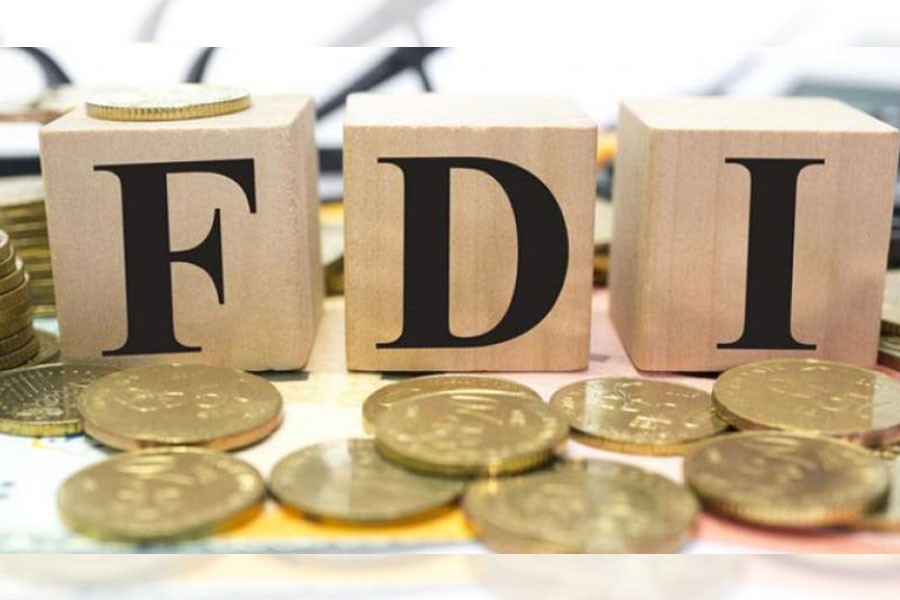Experts on Saturday listed inconsistencies in relevant policies as the main impediment to smooth flow of foreign direct investment (FDI) into the country.
They suggested bringing holistic reforms of policies concerning tax, trade and investment.
Taking part in a virtual discussion, they urged the government to upgrade the policies and make them much more predictable for both local and overseas investors.
Terming the FDI important for bringing the latest technologies at the local level, they laid emphasis on innovations and exercise of the best corporate practices. These would help develop inward and backward linkage industries locally as a spill-over effect.
The Economic Development Research Organisation (EDRO) arranged the virtual discussion where economists, bankers and development activists took part.
The online discussion titled "FDI Situation in Bangladesh, Problems and Prospects by Covid 19" was moderated by EDRO research associate M Helal Ahmed Jony.
The participants suggested giving more attention to FTA (free trade agreement) along with adoption of the Asia-centric investment policy as most FDI now comes from China and Hong Kong.
Speaking at the event, executive director of Policy Research Institute (PRI) Dr Ahsan H Mansur said Bangladesh is far behind its major competitors like Vietnam, Cambodia and Malaysia in terms of doing business, competitiveness and logistics indexes.
As a result, Bangladesh failed to link itself in the Asian value chain, he said.
"Trade policy is not investment-friendly here. It has created a highly protective regime. So, local companies are more interested in the domestic market rather than the international one," said the economist.
Dr Mansur said that the ratios of both import to GDP and export to GDP have been falling continuously, but the trend cannot be addressed unless investment in the export sector is increased significantly.
"We cannot do this because of our trade regime which signals us that domestic trading is more profitable than going for export," he added.
He suggested reshaping the tariff policy in a way so that the investors take the interest to come to Bangladesh.
Senior research fellow of Bangladesh Institute of Development Study (BIDS) Dr Nazneen Ahmed said foreign investors normally invest in a country for a longer period of time.
"But policies in our country change too frequently, making it difficult for the global investors. They (investors) want a predictable policy framework under which they can make business plans for a longer time," she added.
She also emphasised on bringing reforms in the existing bankruptcy act and company act, allowing investors to open or liquidate a business smoothly.
Legal economist and vice president of International Business Forum of Bangladesh MS Siddiqui said global logistic companies wanted to come to Bangladesh with their infrastructure, but one clearing and forwarding agent went to the High Court challenging the move.
And, the High Court issued an injunction that no overseas logistic company can make 100 per cent investment in the country's logistic area, he said.
"Why we are blocking the road for foreign investors. We need to make it open and we should follow investment policies pursued by China or others who are successful in attracting FDI," he added.
Associate professor at the department of economics of Rajshahi University Dr Farid Khan said inward and backward linkage industry are being developed based on FDI alongside transfer of skills and technology.
"It creates jobs for many. So, we should encourage FDI treating it as an important tool for poverty alleviation," he added.
Terming slow dispute settlement procedure as one of the key impediments for the international investors, banker and economic analyst Md. Mazadul Haque suggested formulation of a special tribunal to ensure quick disposal of investment-related disputes.
Dr Shah Md Ahsan Habib of Bangladesh Institute of Bank Management and EDRO research director Dr Md Nazmus Sadekin also spoke at the online discussion.
jubairefe1980gmail.com


